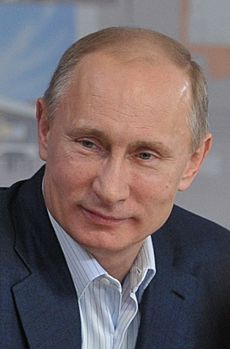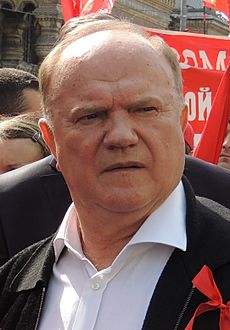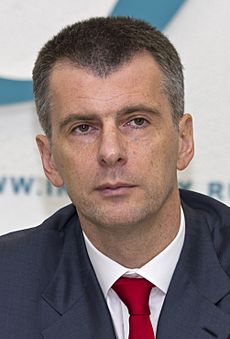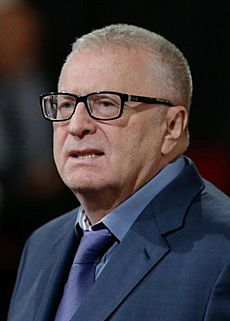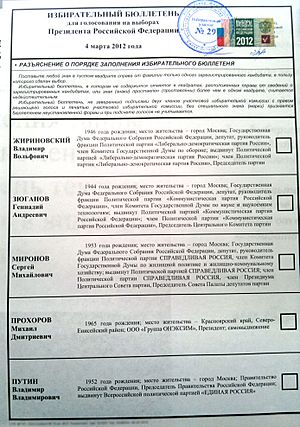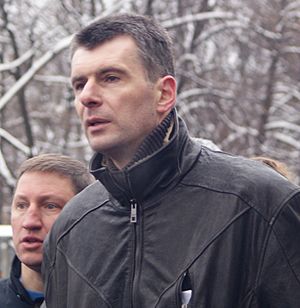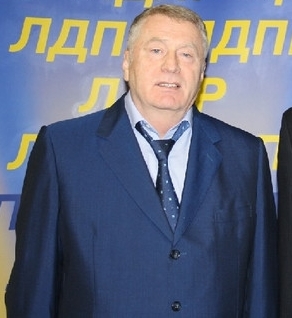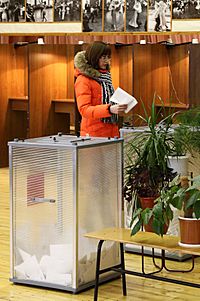2012 Russian presidential election facts for kids
Quick facts for kids |
|||||||||||||||||||||||||||||||||||||
|
|||||||||||||||||||||||||||||||||||||
| Opinion polls | |||||||||||||||||||||||||||||||||||||
| Turnout | 65.27% ( |
||||||||||||||||||||||||||||||||||||
|---|---|---|---|---|---|---|---|---|---|---|---|---|---|---|---|---|---|---|---|---|---|---|---|---|---|---|---|---|---|---|---|---|---|---|---|---|---|
|
|||||||||||||||||||||||||||||||||||||
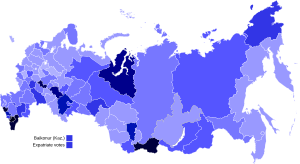
Results by federal subject
Vladimir Putin: 45–50% 50–55% 55–60% 60–65% 65–70% 70–75% 75–80% 80–85% 85–90% 90–95% >95% |
|||||||||||||||||||||||||||||||||||||
|
|||||||||||||||||||||||||||||||||||||
The 2012 Russian presidential election took place on March 4, 2012. People in Russia voted for their next president. This election was special because it was the first time the president would serve a six-year term instead of four years.
Five candidates were officially running for president. Four of them represented political parties, and one was an independent candidate. The previous president, Dmitry Medvedev, suggested that Vladimir Putin should run. Putin accepted and won the election with 63.6% of the votes. This was his third time becoming president.
Contents
Presidential Candidates
Many people wanted to become president. The Russian Central Election Commission (CEC) checked all the applications.
Official Candidates for President
The following people were officially allowed to run. They are listed in the same order as they appeared on the ballot paper:
| Candidate Name, Age, Political Party |
Important Jobs | Campaign Info | ||
|---|---|---|---|---|
| Vladimir Zhirinovsky (65) Liberal Democratic Party |
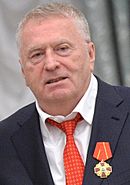 |
Member of the State Duma (1993–2022) Leader of the Liberal Democratic Party (1991–2022) |
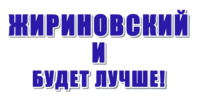 (campaign) |
|
| Gennady Zyuganov (67) Communist Party |
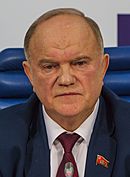 |
Member of the State Duma (1993–present) Leader of the Communist Party (1993–present) |
(campaign) | |
| Sergey Mironov (59) A Just Russia |
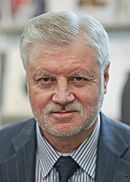 |
Member of the State Duma (2011–present) Leader of A Just Russia (2006–2011 and 2013–present) Head of the Federation Council (2001–2011) |
(campaign) | |
| Mikhail Prokhorov (46) Independent |
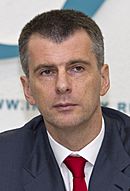 |
Leader of Right Cause (2011) |
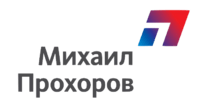 (campaign) |
|
| Vladimir Putin (59) United Russia |
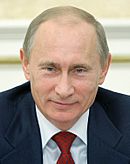 |
Prime Minister of Russia (1999–2000 and 2008–2012) Leader of United Russia (2008–2012) President of Russia (2000–2008) |
 (campaign) |
|
Campaigning for President
Each candidate tried to convince people to vote for them. They shared their ideas and promises.
Sergey Mironov's Campaign
Sergey Mironov, from the A Just Russia party, wanted Russia to return to a socialist way of governing. This means the government would have more control over the economy and public services.
Mikhail Prokhorov's Campaign
Mikhail Prokhorov traveled across Russia to meet with his supporters. He was one of the few candidates to do this.
He promised several changes if he became president:
- Bring back elections for regional leaders (governors).
- Change the presidential term back to four years from six.
- Choose Alexei Kudrin to be his prime minister.
- End government control over TV and radio stations.
- Break up large energy companies like Gazprom.
- Improve relations with the European Union.
Vladimir Putin's Campaign
Vladimir Putin shared his plans by writing seven articles in different Russian newspapers. In these articles, he talked about Russia's achievements and future goals. He covered topics like the economy, social policy, and foreign relations.
Putin's Speeches
Putin gave one big public speech at a rally in Luzhniki Stadium on February 23. This day is Russia's Defender of the Fatherland Day. He asked people to love their country and unite for its good. He also said that other countries should not interfere in Russia's matters.
He compared the situation to a historical event, Napoleon Bonaparte's invasion of Russia. He reminded everyone that 2012 was the 200th anniversary of the Battle of Borodino. Putin ended his speech with a famous wartime slogan: "The Victory Shall Be Ours!"
Some news reports said that some people at the rally were told by their bosses to attend or were paid to be there. Some even thought they were going to a "folk festival."
Vladimir Zhirinovsky's Campaign
Vladimir Volfovich Zhirinovsky is a very experienced politician in Russia. He had run for president five times before this election. His campaign slogan for 2012 was simple: "Vote Zhirinovsky, or things will get worse." A donkey named Proshka, owned by Zhirinovsky, even appeared in one of his election videos.
Gennady Zyuganov's Campaign
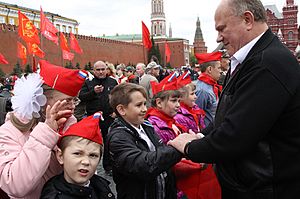
In September 2011, Gennady Zyuganov was again chosen as the candidate for the Communist Party of the Russian Federation (CPRF).
Election Results
On election day, over 108 million people were eligible to vote. To make the election fair, almost all 95,000 polling stations had webcams. These cameras streamed live video of the voting process. This was done to address concerns about fairness from previous elections.
| Candidate | Party | Votes | % | |
|---|---|---|---|---|
| Vladimir Putin | United Russia | 45,602,075 | 64.35 | |
| Gennady Zyuganov | Communist Party | 12,318,353 | 17.38 | |
| Mikhail Prokhorov | Independent | 5,722,508 | 8.08 | |
| Vladimir Zhirinovsky | Liberal Democratic Party | 4,458,103 | 6.29 | |
| Sergey Mironov | A Just Russia | 2,763,935 | 3.90 | |
| Total | 70,864,974 | 100.00 | ||
| Valid votes | 70,864,974 | 98.83 | ||
| Invalid/blank votes | 836,691 | 1.17 | ||
| Total votes | 71,701,665 | 100.00 | ||
| Registered voters/turnout | 109,860,331 | 65.27 | ||
| Source: CEC | ||||
Election Issues and Fairness
International observers from the Organization for Security and Co-operation in Europe (OSCE) watched the election. They said that while all candidates could use the media, Vladimir Putin was shown much more often. They also felt that strict rules for candidates made it hard for true competition.
Tonino Picula, who led the OSCE team, said there were "serious problems from the very start." He noted that the election's outcome seemed certain from the beginning. He also mentioned that government resources were used in a way that helped the winning candidate.
The OSCE observers said that voting on election day generally went well. However, they found problems during the vote counting in almost one-third of the polling stations. These were called "procedural irregularities." The OSCE asked for these issues to be investigated.
Some people claimed that Putin's supporters were driven to different places to vote multiple times. This is called "carousel voting." Videos from the web cameras also showed some cases of "vote stuffing," where extra ballots were added unfairly.
The Communist Party of the Russian Federation did not accept the election results.
Public Protests
After the election, many people protested. On March 11, 2012, about 15,000 to 20,000 people protested in Moscow. They were upset about what they saw as unfair voting and Putin's continued rule. Protest organizers said they wanted to keep protesting until Putin's inauguration.
Presidential Inauguration
Vladimir Putin officially became president at the Kremlin on May 7, 2012. The day before, on May 6, large protests happened in Moscow. Between 8,000 and 20,000 people took part. During these protests, about 80 people were hurt, including over 30 police officers. Many people were arrested over these two days.
Election Costs
The election cost about 10.375 million Russian roubles. The Russian Central Election Commission reported that they managed to save some money from the budget during the campaign.
See also
 In Spanish: Elecciones presidenciales de Rusia de 2012 para niños
In Spanish: Elecciones presidenciales de Rusia de 2012 para niños
- Bald–hairy


